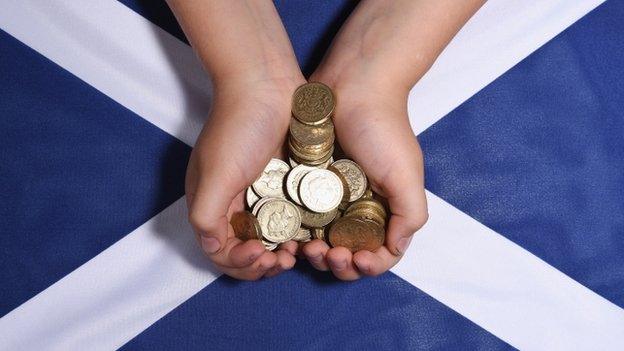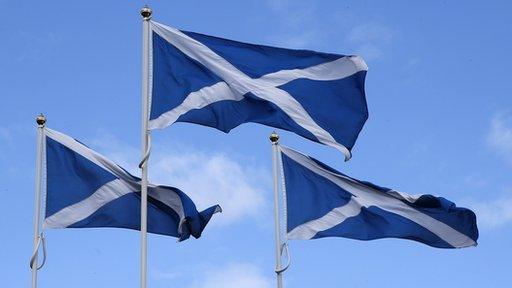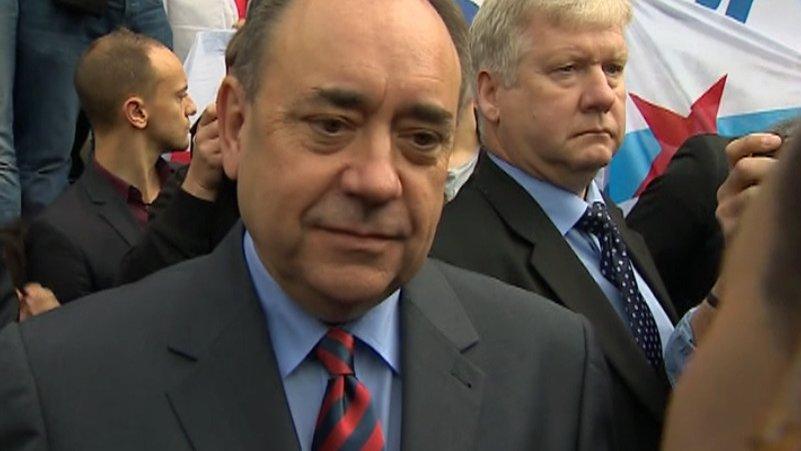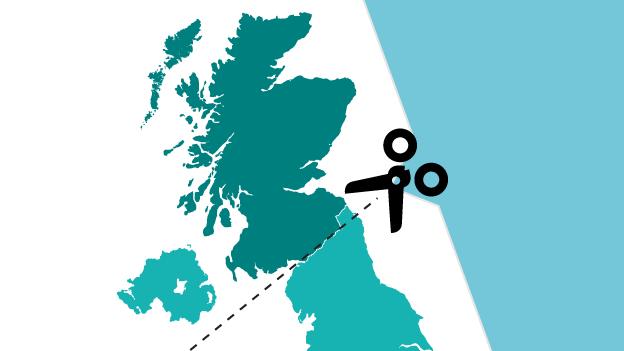Mark Carney warns Scotland over pound
- Published

"Currency union is incompatible with sovereignty," Mr Carney said
Bank of England governor Mark Carney has told trade unions that currency union in the event of Scottish independence would be "incompatible with sovereignty".
Mr Carney told the TUC conference that a currency required a centralised bank and shared banking regulations.
Common taxation and spending were also needed, he said.
The SNP said currency union was "in the best interests of both an independent Scotland and the rest of the UK".
It added that currency union plans had been considered in detail.
For their part, pro-union campaigners said a shared currency would be "bad for Scotland".
The Scottish National Party (SNP), which wants to keep the pound in the event of independence, said that its plans had been "considered in detail" by the Fiscal Commission, a working group of the Scottish government.
An SNP spokesperson for Scottish finance minister John Swinney said: "Successful independent countries such as France, Germany, Finland and Austria all share a currency - and they are in charge of 100% of their tax revenues, as an independent Scotland would be. At present under devolution, Scotland controls only 7% of our revenues."
The Conservatives, Labour, and the Liberal Democrats have all come out against a currency union with an independent Scotland.
The SNP spokesperson said that "the political position of the three Westminster parties... will of course change after a Yes vote."
"And as the momentum builds behind the Yes campaign, their currency bluff has well and truly been called," the spokesperson added.
"Unproven currency"
However, the pro-union "Better Together" campaign said that Mr Carney's comments "blew a hole in Alex Salmond's assertions that a separate Scotland could sign up to a currency union with the rest of the UK and still keep control over tax, spending and borrowing."
Alistair Darling, the leader of the campaign, said: "It would mean what would then be a foreign country having control over our economy. That's why a currency union would be bad for Scotland, as well as the rest of the UK."
Scotland would either have to "rush to adopt the euro" or "set up a separate unproven currency," he said.
Mr Darling added that uncertainty over the economy "puts jobs at risk."
"It means a weaker economy and less money to spend on our NHS," he said.
BBC economics editor Robert Peston said that the coalition parties and Labour feared that an independent Scotland in a currency union could "live dangerously beyond its means and borrow on a scale that degraded sterling".
He added: "There was no way that the Tories, Labour and LibDems could allow full budget-making freedom to Scotland even as part of the UK, because to do so would make their argument against monetary union with an independent Scotland look inconsistent and hypocritical.
"They were therefore thrilled today when the governor of the Bank of England agreed with them that a currency union would be incompatible with Scotland being an independent sovereign state," he said.
- Published9 September 2014
- Published16 September 2014

- Published9 September 2014

- Published9 September 2014

- Published19 August 2014
